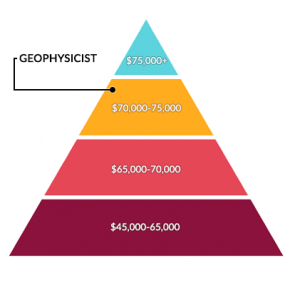All Categories
Featured
Table of Contents
Introducing Geophysical Surveying in Wanneroo WA 2023
This work is progressively contracted out, so consultancies supply another source of work. Consultancy firms vary in size, from extremely little business to large multinationals. Some consultancies are quite specialised in utilizing specific geophysical methods or working in specific locations, while others offer a more diverse variety of services to their consumers.
The extraction of gas from garbage dump sites is another area of work and this may grow in the future. Expedition business may undertake work for building and construction companies, public utility, mining companies and ecological agencies, so geophysicists may be employed in any of these settings. Other employers consist of: geological surveysgovernment bodies and agenciesuniversities and research institutes.


Vacancies may be listed in the oil and gas sector press. Recruitment is affected by oil cost variations and the level of competition for positions differs depending upon this. Professions Days, which cover the complete variety of geoscience careers and are generally gone to by a variety of crucial market employers, are run by The Geological Society.
Geology Careers: Degree Requirements, Cost & Salary in Warwick WA 2023
Some of the large oil and gas companies offer a complete two-year structured training programme throughout the breadth of geophysics, consisting of the opportunity to experience work in numerous teams before specialising in one location. Your training may consist of work on: existing wellsmagnetic and gravitational potential field data analysisresearchrock analysis. It's more usual for your initial training to be offered on the job.

There might be a probationary period throughout which you work together with a knowledgeable colleague. Competency-based appraisals occur regularly in most companies. In smaller sized companies, and for scholastic posts, there is unlikely to be any formal training - you'll be anticipated to start work straightaway and get abilities as you go along.
If you work for a smaller business, you may find that you need to take obligation for setting up and moneying your own advancement and training. If you have a geology degree, subscription of The Geological Society can be useful for networking and for keeping up to date with the industry.
Geophysical Survey in Woodbridge Australia 2023
You might likewise find it helpful to sign up with the PESGB (The Petroleum Exploration Society of Great Britain, which has a geophysics unique interest group. After a probationary duration, and when you've acquired some experience, you might progress to senior geophysicist, then team leader and then into a senior function in management.
The ease of motion between roles depends on the business structure. Study at Masters or Ph, D level in a subject associated to geophysics or geosciences might aid with your career development and progression. The work market within the oil and gas industry is extremely based on rate and this may affect your chances for profession development.
Not all jobs are reliant on the oil and gas markets. For knowledgeable geophysicists, freelance consultancy uses a good path for career development. You can also specialise in a particular area of geophysics. As a geophysicist, you're likely to have a number of jobs throughout your working life. International movement is essential for handling peaks and troughs in various nations at different times.
Geophysics in Parmelia WA 2020
From geophysics, it's possible to concentrate on seismology (completing further training to become a seismic interpreter) or to move into associated areas such as engineering geology or hazard prediction.
Choosing what to study in college is a difficult choice. Even if you understand that your field of interest lies in science, what program of study is best for you? If you make the choice to significant in physical and life sciences and pursue a profession as a geophysicist, you're getting ready for an interesting and rewarding profession.
The very first action to attaining your objective of becoming a geophysicist is making a degree. Even for entry-level positions in the field of geoscience, you'll require a bachelor's degree (a geophysicist college degree) from a certified college or university. Some research positions require prospects to hold master's degrees or perhaps Ph.
What Are Geophysical Surveys & Why Do They Matter in Kardinya Western Australia 2022
Doctoral degrees are especially essential if you plan to teach at a four-year institution. Geophysicists use physics ideas and methods to study the gravitational, magnetic, and electrical fields of the earth. This enhances researchers' understanding of both the world's interior core and its surface. Geophysicists should be able to: evaluate rocks, pictures, and other pieces of data conduct research study both in the field and in laboratories create maps and charts of their findings write reports To accomplish all this, students need a specialized education for geophysicist professions.
As mentioned above, you'll need a bachelor's degree in geoscience or a related discipline, such as a physical science or a natural science, to land an entry-level job. However trainees can likewise prepare by learning subjects like: Biology Chemistry Computer technology Engineering Mathematics Physics The above geophysicist majors use a more generalized technique to a single clinical discipline, but a lot of programs require students to take one or more geology course.
Table of Contents
Latest Posts
Geophysical And Geotechnical Assessment in Mount Hawthorn Western Australia 2020
Geophysicist Bob Embley: Ocean Exploration Careers in Alexander Heights Oz 2022
Geophysical Surveys: Definition & Methods in Woodlands Western Australia 2021
More
Latest Posts
Geophysical And Geotechnical Assessment in Mount Hawthorn Western Australia 2020
Geophysicist Bob Embley: Ocean Exploration Careers in Alexander Heights Oz 2022
Geophysical Surveys: Definition & Methods in Woodlands Western Australia 2021